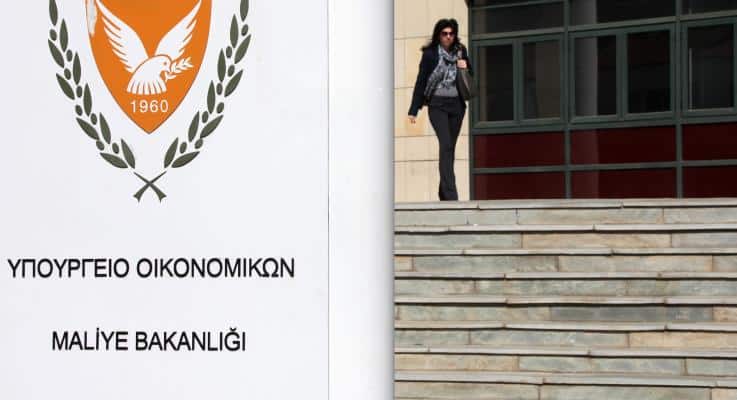The finance ministry has “absolutely refused” to pay any money to Greece’s independent transmission system operator (Admie) for the Great Sea Interconnector project, on account of the fact that the project is “frozen”, according to reports on Friday.
News website Brief reported that the ministry’s permanent secretary Andreas Zachariades penned a letter to the energy ministry and to Cyprus’ transmission system operator (TSO) ahead of last week’s meeting of the House energy committee – the last before parliament’s summer recess.
At that meeting, the website reported, Energy Minister George Papanastasiou had “tried to justify, in some way, the financial request made by Admie, by saying that the cable laying work is supposedly progressing”, after Admie had asked Cyprus to pay €25 million as part of its obligations regarding the project.
Then, according to the same report, the TSO wrote to the finance ministry and asked to be informed of how the €25m Admie had requested will be spent, and how Cypriot consumers will be affected, given that Admie had asked the Cyprus energy regulatory authority (Cera) to begin charging Cypriot consumers directly to finance the payment.
The €25m in question has been allocated by the government as part of the finance ministry’s budget, and as such, the energy ministry cannot touch it without the finance ministry’s express permission.
The government had initially planned to utilise funds made available to it through the European Union’s emissions trading system (ETS) to meet a total of €125 million worth of payments between 2025 and 2029.
However, Admie has now warned the Cypriot authorities that this arrangement may violate the EU’s rules on state aid, and as such has asked the Cyprus energy regulatory authority (Cera) to begin charging Cypriot consumers directly.
Admie had asked the Republic of Cyprus to make those payments before the interconnector is operational, in effect helping finance the project and ensuring that Admie will have a stable income while investing in the project before the project itself turns a profit.
However, with progress now according to many observers stalled on the interconnector, the finance ministry is unwilling to free up the funds.
Friday’s report stated that the ministry had asked those involved “to state frankly whether the construction of the cable, without the relevant surveys, without deep-sea exploration, or even without the … resumption of the project obliges the Republic of Cyprus to bear any financial cost, and in particular to disburse the €25m”.
In addition, it said, the ministry had “asked to know whether any such commitment is included in the framework of any agreement which may have been concluded between the energy ministry and its counterpart in Athens”.
The report also quotes “technocrats” at the finance ministry as having warned that should the Cypriot government pay the €25m under the current conditions, with the project said to be “frozen”, a “precedent of financial commitment” could be set.
Such a precedent, the technocrats said, could lead the Republic of Cyprus “to at the end of the day being obliged to pay for a project which has been costed at €1.4 billion without being completed”.
“Why would the government accept that the Cypriot taxpayer bear such a large cost without, at the end of the day, the electrical interconnection being possible?”, the technocrats are quoted as having asked.
Friday’s report also claims that the legal service “played a decisive role” in the decisions made by the finance ministry on the matter, with “many documents” regarding the interconnector having been “paraded before the legal service”.
As such, it states, opinions offered by the legal service were “crucial to the country avoiding undesirable solutions which could potentially lead it to serious fiscal problems”.
Friday’s report comes after newspaper Phileleftheros had on Wednesday reported that the finance ministry had refused to pay the €25m Admie had requested, and that the ministry will not acquiesce to the payment “if Admie does not convince it that the project is progressing well not only at the Nexans factory, but in the sea”.
Nexans is the French company which is manufacturing the cables which are to be laid under the sea to connect the three countries’ electricity grids.
The report added that the finance ministry has issued a written update, stating that the current state of affairs “does not allay concerns” that the interconnector project has stalled.
The ministry reportedly added that that Admie “intends for Cypriot consumers to pay for a cable costing €1.4 billion, even though [Admie], the Greek government, and the European Union – let alone the Republic of Cyprus – are not able to guarantee the cables will be fully laid and operational by 2030”.
These issues were raised at an online meeting on Tuesday night, which was attended by representatives of Admie, Cera, Greece’s energy regulatory authority (Raaey), and the European Commission’s directorate-general for energy.
The stated aim of that meeting was to ensure that “regulatory decisions” be made to ensure the future of the interconnector project, with Admie chairman Manos Manousakis saying after the meeting that “no progress” had been made.
As such, he said, the European Commission has scheduled another meeting for July 23.
The latest hitch in the project comes amid growing doubts regarding its future, with energy expert Dr Charles Ellinas having earlier said the project had been “interrupted”, and that stakeholders are unsure of its future, “despite assurances” from Admie.
In May, Admie, the project’s 51 per cent majority stakeholder and implementing body, was forced to deny that it has plans to build an electricity interconnector to the country’s Dodecanese islands rather than to Cyprus.
The denial came after a report was published in Greek newspaper Kathimerini which suggested that given the financial and geopolitical hurdles faced by the Great Sea Interconnector project, which would connect the electricity grids of Greece, Cyprus, and Israel, a project housed entirely in Greece may be more feasible.
The newspaper had written that Admie and Nexans have been “looking for a plan B to mitigate the effects of the prolonged uncertainty and the threat of cancellation”.
The reports of Admie and Nexans possibly searching for a way out of the Great Sea Interconnector project came after Admie temporarily suspended payments to Nexans for the manufacture and installation of cables for the project.
At the time, Papanastasiou had told CyBC the decision was understandable “in the context of the technical, fiscal, and geopolitical risks inherent to the project”, with it having been revealed that payments were suspended after Turkish warships had reportedly “disrupted” seabed surveys related to the project.







